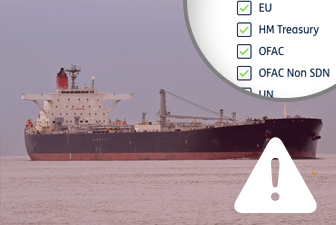Unipec joins Exxon embargo on vessels linked to Venezuela
Contract clause seen by Lloyd’s List reveals how the charterer is now forcing owners to carry all risk associated with Venezuela
Unipec, the world’s largest dirty tanker spot charterer, appears to have halted chartering vessels that have had any business links with Venezuela, including port calls, within a 12-month period. The move, which matches the same decision by ExxonMobil last week, comes amid already tightened tonnage and 11-year tanker rate highs
CHINESE energy trading giant Unipec has matched ExxonMobil’s move to stop chartering any vessels that have conducted business with Venezuela within a 12-month time span, Lloyd’s List understands.
The decision by the world’s largest charterer of dirty spot tonnage is likely to accelerate increases in soaring tanker rates, which have hit 11-year highs this week as US sanctions against Iran and Venezuela have created an imbalance in the market.
A contract clause text believed to be issued by Unipec, and seen by Lloyd’s List, reveals how the charterer is now forcing owners to carry all risk associated with Venezuela and effectively halts any association with ships that have had links to Venezuela in the past year.
“Owners warrant that the performing vessels has not within the previous one year from the date of this charter party called at a port or place in Venezuela, carried any cargoes to or from Venezuela, or been charter to or otherwise associated with any party identified in respect of any Venezuelan sanctions regime, including those of the UN/UK/EU/USA,” the text reads.
Lloyd’s List understands the clause was issued by Unipec within the past week and the implications of the decision, the details of which matches ExxonMobil’s contract clause very closely, implies more than 200 tankers could be affected, dramatically tightening the already limited list of vessels immediately available for hire.
As of this week, some 88 very large crude carriers had called at Venezuelan ports and 115 suezmaxes had called at ports and loaded crude from anchorage zones within its waters in the past 12 months according to Lloyd’s List Intelligence data.
The US government issued new sanctions against Venezuela in early 2019, banning US companies from importing Venezuelan crude and banning imports of naphtha.
With these two major decisions relating first to Venezuela and second to the US sanctions against Cosco tankers’ business, tanker rates have reached heights in some routes that have not been seen in more than a decade.
By Thursday afternoon, the Baltic Tanker Index showed that rates for tankers on routes from the Middle East Gulf to China and Singapore both climbed by around 28% day on day to $158,030 and $162,048 per day, respectively.
US Gulf to China rates also continued to rise, remaining above $100,000.
Unipec, which is a subsidiary of Chinese energy producer Sinopec, was the largest charterer of VLCCs in the first of half 2019, according to Poten & Partners.
The contract clause effectively gives Unipec the right to cancel the charter contract immediately without any liability.
The vessel owner also has to agree to protect charterers against an extensive list of specified financial damages and any legal penalties that come its way due to the owners violating this clause or sanctions on Venezuela.
News of ExxonMobil applying the same clause to vessels it charters emerged earlier this week, further pushing up tanker rates that have been boosted by US sanctions on Cosco’s tanker business.
As many as 150 tankers beneficially owned by Chinese sipping giant Cosco are being shunned by refiners and traders, after the US administration sanctioned two Cosco subsidiaries on September 25.
A charter contract clause text believed to be issued by SeaRiver Maritime, Exxon Mobil’s fully owned shipping outfit, and seen by Lloyd’s List confirms that the company is also avoiding charters with vessels that have conducted business with Venezuela within the past year.
The clause uses the same language as the one believed to be issued by Unipec.
Lloyd’s List has approached both ExxonMobil and Unipec for comment, but neither company was immediately available to confirm the authenticity of the contract clauses which are now being circulated by brokers.



